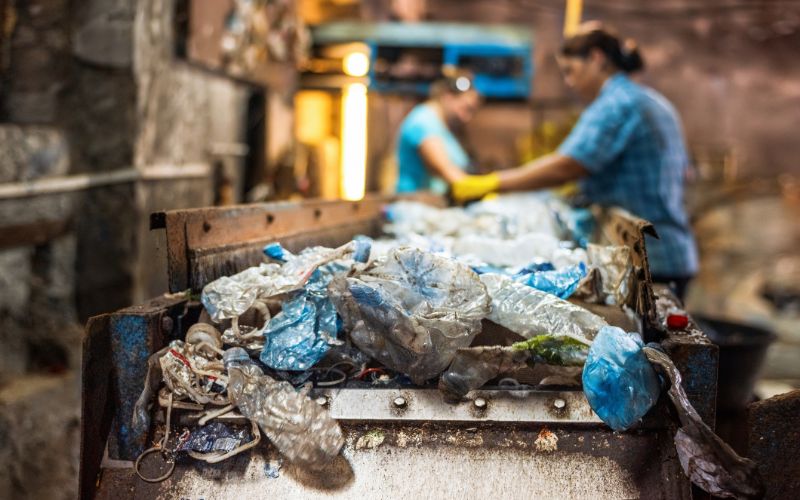Plastic recycling is a critical component of waste management and environmental conservation. However, the complexities of the recycling process and the varying effectiveness of recycling programs often lead to misconceptions. Understanding the facts and debunking the myths surrounding plastic recycling can help individuals and communities make more informed decisions about waste management and sustainability. Here’s a look at some common facts and myths about plastic recycling.
Facts about Plastic Recycling
**1. Plastic Can Be Recycled, but Not Indefinitely
- Recycling Process: Plastics can be recycled through various methods, including mechanical and chemical recycling. Mechanical recycling involves shredding and melting plastic to create new products, while chemical recycling breaks plastics down into their basic chemical components for reuse.
- Degradation: Each time plastic is recycled mechanically, the quality of the material can degrade slightly. This means that plastic can only be recycled a limited number of times before it becomes unsuitable for further recycling.
**2. Not All Plastics Are Recyclable
- Resin Identification Codes: Plastics are categorized by resin identification codes (1-7), which indicate their type and recyclability. While some plastics like PET (code 1) and HDPE (code 2) are widely accepted for recycling, others, such as PVC (code 3) and polystyrene (code 6), are less commonly recycled.
- Contamination: Plastic items that are contaminated with food, chemicals, or other substances can be difficult or impossible to recycle. Proper cleaning and sorting are essential for effective recycling.
**3. Recycling Reduces Environmental Impact
- Resource Conservation: Recycling plastic helps conserve raw materials, reduce energy consumption, and lower greenhouse gas emissions compared to producing new plastic from virgin resources.
- Waste Reduction: Recycling prevents plastic waste from ending up in landfills or the environment, reducing pollution and the risk of wildlife harm.
**4. Recycling Systems Vary by Region
- Local Programs: Recycling capabilities and programs differ widely by region and municipality. Some areas have robust recycling infrastructure, while others may struggle with limited facilities or resources.
- Consumer Responsibility: Understanding local recycling guidelines and participating in community recycling programs are crucial for effective plastic recycling.
**5. Recycling Can Support a Circular Economy
- Closed-Loop Systems: Some innovative recycling programs and technologies enable the creation of closed-loop systems where recycled plastics are used to produce new products, thereby reducing waste and conserving resources.
- Design for Recycling: Manufacturers are increasingly designing products and packaging to be more recyclable, which supports the development of a circular economy.
Myths about Plastic Recycling
**1. All Plastics Can Be Recycled
- Myth: Many people believe that all plastics can be recycled, regardless of their type or condition.
- Fact: In reality, not all plastics are recyclable, and even recyclable plastics may not always be accepted by local recycling programs. The recyclability of plastics depends on their type, condition, and the availability of appropriate recycling facilities.
**2. Recycling Plastics Solves the Plastic Waste Problem
- Myth: Recycling alone is often seen as a solution to the plastic waste crisis.
- Fact: While recycling is an important part of waste management, it is not a complete solution. Reducing plastic use, improving waste management practices, and transitioning to alternative materials are also essential for addressing plastic pollution.
**3. Recycled Plastics Are of Lower Quality
- Myth: Some believe that recycled plastics are always of lower quality and are unsuitable for high-performance applications.
- Fact: Advances in recycling technologies have improved the quality of recycled plastics, enabling them to be used in a wide range of applications. High-quality recycled plastics can match or exceed the performance of virgin materials in many cases.
**4. Recycling is Too Expensive and Inefficient
- Myth: Recycling is often perceived as too costly and inefficient compared to other waste management methods.
- Fact: While recycling can have upfront costs, it offers long-term benefits such as resource conservation and environmental protection. Technological advancements and improvements in recycling infrastructure are making recycling more cost-effective and efficient.
**5. Recycling is a Personal Responsibility
- Myth: Some people think that recycling is solely the responsibility of individuals and that systemic issues with recycling infrastructure are beyond their control.
- Fact: While individuals play a crucial role in recycling, systemic changes and improvements in recycling infrastructure, policies, and industry practices are also essential for effective waste management. Collective efforts from governments, businesses, and communities are needed to enhance recycling systems.
Conclusion
Understanding the facts and myths about plastic recycling is key to making informed decisions and promoting effective waste management. While recycling is an important tool for reducing plastic waste and conserving resources, it is not a standalone solution to the plastic pollution crisis. Addressing plastic waste requires a multi-faceted approach, including reducing plastic consumption, improving recycling technologies, and supporting systemic changes in waste management practices. By recognizing the realities of plastic recycling and actively participating in sustainable practices, individuals and communities can contribute to a healthier environment and a more sustainable future.


